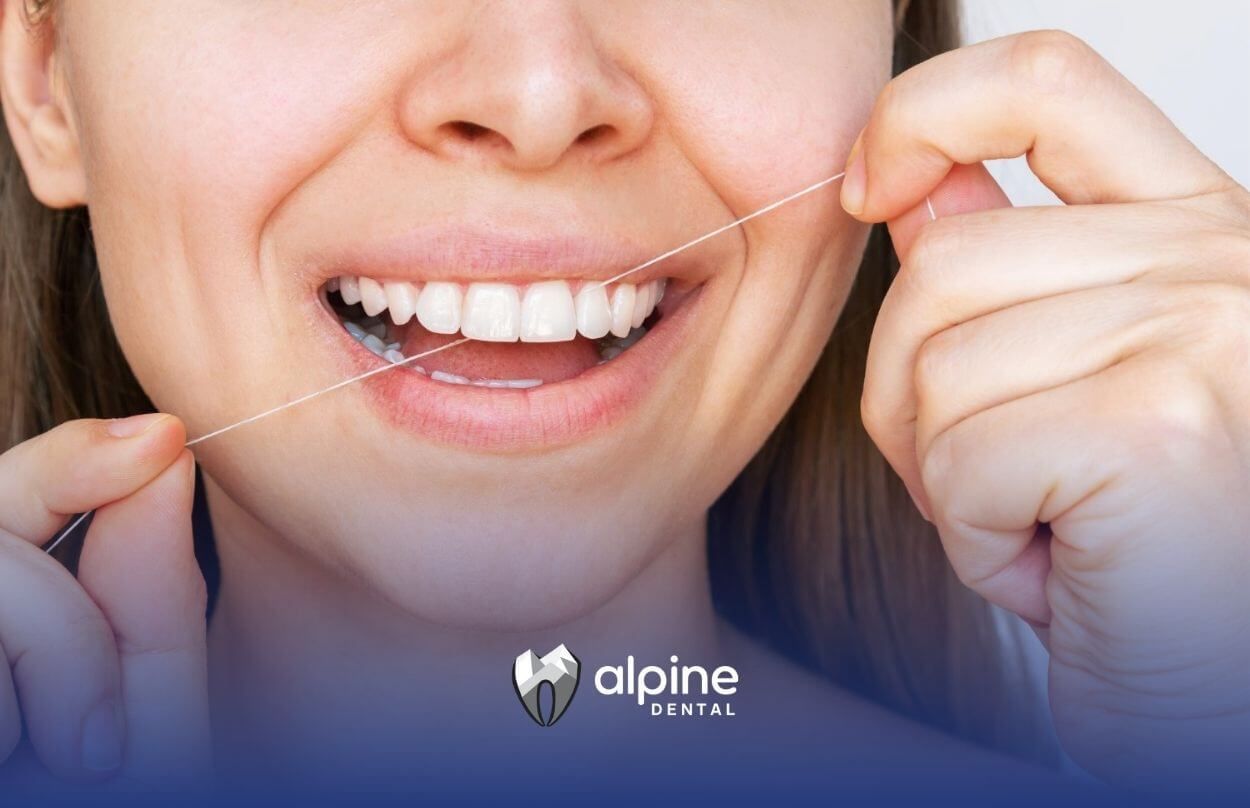What is Plaque in Teeth? Causes, Risks, and Prevention
Maintaining good oral hygiene is essential for a healthy smile, but even the most diligent brushing and flossing routines can sometimes miss one critical factor: plaque. This sticky, colorless film of bacteria forms on your teeth and, if left unchecked, can lead to a variety of dental problems. From cavities to gum disease, plaque is one of the primary culprits behind many oral health issues.
In this article, we'll explore what plaque is, why it forms on your teeth, the risks it poses to your oral health, the best ways to prevent and treat it, and how dental professionals can help. Understanding plaque is the first step in achieving and maintaining optimal dental health.
What Is Plaque?
Plaque is a soft, sticky film that forms on the surface of your teeth, primarily made up of bacteria, food particles, and saliva. While it is colorless and often hard to detect, plaque can eventually harden into tartar if not removed regularly, leading to a host of dental problems.
Plaque naturally forms on teeth after eating, especially if you consume sugary or starchy foods. The bacteria in plaque feed on sugars and starches, producing acids that can erode tooth enamel, leading to cavities and other dental problems.
Causes of Plaque Formation
Plaque is caused by the combination of bacteria, food, and saliva in your mouth. The most common causes of plaque buildup include:
1. Poor Oral Hygiene
If you don’t brush and floss your teeth properly and regularly, plaque will begin to build up. Plaque can form within hours after eating, making it important to brush your teeth at least twice a day and floss daily to remove plaque before it hardens into tartar.
2. Diet
A diet high in sugar and refined carbohydrates promotes plaque formation. Bacteria in the mouth feed on sugar, producing acids that can harm your teeth and gums. The more sugar and starches you consume, the more plaque you’re likely to develop.
3. Tobacco Use
Smoking or chewing tobacco can significantly increase plaque buildup on your teeth. Tobacco can contribute to the formation of plaque, making it more difficult to remove. Additionally, it can stain teeth and contribute to gum disease.
4. Dry Mouth
Saliva plays an essential role in washing away food particles and bacteria that lead to plaque formation. If you have a dry mouth due to medications, health conditions, or dehydration, you may be more prone to plaque buildup.
5. Medical Conditions
Certain health conditions, such as diabetes, can increase the likelihood of plaque buildup and gum disease. People with diabetes, for instance, are at a higher risk of developing infections, including gum disease, due to the body’s weakened ability to fight off bacteria.
The Risks of Plaque in Teeth
While plaque itself is not immediately harmful, if it’s left untreated, it can lead to a number of serious oral health issues:
1. Cavities
When plaque accumulates on your teeth, the acids produced by bacteria begin to erode the enamel, the protective layer of your teeth. Over time, this leads to the formation of cavities, which are small holes or openings in the teeth that require dental treatment to repair.
2. Gum Disease (Gingivitis and Periodontitis)
Plaque that is not removed can irritate the gums, leading to gingivitis, the earliest stage of gum disease. Symptoms of gingivitis include red, swollen, or bleeding gums, especially when brushing or flossing. If gingivitis is left untreated, it can progress to periodontitis, a more severe form of gum disease that can result in tooth loss and other health problems.
3. Bad Breath (Halitosis)
Plaque contributes to the development of bad breath, or halitosis, as the bacteria in plaque release sulfur compounds that cause an unpleasant odor. Plaque buildup near the gums is especially problematic for causing bad breath.
4. Tooth Sensitivity
Plaque buildup near the gum line can cause gum recession, leading to tooth sensitivity. This sensitivity can make eating or drinking certain foods, like hot or cold items, uncomfortable or even painful.
5. Tartar Formation
If plaque is not removed through regular brushing and flossing, it can harden into tartar (also known as calculus). Tartar can only be removed by a dental professional, and its presence can lead to further gum irritation, cavities, and even tooth loss if not treated.
How to Prevent Plaque in Teeth
Preventing plaque buildup is easier than most people think, and the good news is that it can be done with a few simple habits:
1. Brush Your Teeth Twice a Day
Brushing your teeth at least twice a day for two minutes each time is essential for preventing plaque buildup. Use a fluoride toothpaste and a soft-bristled toothbrush. Brush gently to avoid damaging your gums or enamel, especially along the gum line where plaque tends to accumulate.
2. Floss Daily
Flossing is just as important as brushing when it comes to plaque removal. Flossing helps to clean areas between your teeth that your toothbrush cannot reach, removing plaque and food particles that contribute to plaque buildup.
3. Rinse with Mouthwash
Mouthwash can help remove food particles and bacteria that contribute to plaque formation. Look for mouthwashes that contain fluoride or antibacterial ingredients like chlorhexidine, which can help prevent plaque buildup.
4. Eat a Balanced Diet
A healthy diet rich in fruits, vegetables, and whole grains can help reduce plaque buildup. Avoid sugary snacks and drinks, which promote plaque formation. Drinking plenty of water also helps wash away food particles and bacteria from your mouth.
5. Regular Dental Checkups
Seeing your dentist regularly for cleanings and checkups is essential for maintaining optimal oral health. Professional cleanings remove plaque and tartar that can’t be reached by brushing and flossing alone. Your dentist can also detect early signs of gum disease and other dental issues, allowing for early intervention.
6. Quit Smoking
If you smoke or use tobacco products, quitting can significantly improve your oral health. Smoking increases the risk of plaque buildup, gum disease, and other oral health problems. Seeking help from your dentist can assist you in quitting.
What to Do if Plaque Turns into Tartar
If plaque turns into tartar, it can only be removed by a dental professional. Regular professional cleanings are the best way to remove tartar and prevent further damage. If left untreated, tartar buildup can lead to severe gum disease and even tooth loss. Regular visits to your dentist can help ensure that plaque does not turn into tartar and cause irreversible damage.
Conclusion
Plaque is a common but preventable dental problem that can lead to serious oral health issues if left untreated. By maintaining a good oral hygiene routine, including brushing and flossing regularly, eating a balanced diet, and visiting your dentist for regular cleanings, you can effectively prevent plaque buildup and keep your teeth and gums healthy.
Remember, plaque removal is an ongoing process, and it’s essential to take care of your teeth every day. If you're concerned about plaque or have questions about your oral health, make an appointment with a professional dentist. Alpine Dental is here to provide expert care and help you maintain a healthy, beautiful smile for life.
Frequently Asked Questions
How do I know if I have plaque on my teeth?
Plaque is often colorless, but you can tell if you have plaque if your teeth feel sticky, especially after eating. It may also be noticeable around the gum line.
Can plaque cause gum disease?
Yes, plaque buildup can irritate the gums, leading to gingivitis. If left untreated, it can progress to more severe gum disease, including periodontitis.
How often should I see my dentist to prevent plaque buildup?
It’s recommended to visit your dentist at least twice a year for professional cleanings. Regular visits help remove plaque and tartar, keeping your teeth and gums healthy.
Sources:
- https://my.clevelandclinic.org/health/diseases/10953-plaque
- https://pmc.ncbi.nlm.nih.gov/articles/PMC8401118/
- https://pmc.ncbi.nlm.nih.gov/articles/PMC3755365/
- https://my.clevelandclinic.org/health/diseases/11263-oral-health-problems-and-diabetes
- https://www.medicalnewstoday.com/articles/241721
- https://www.mayoclinic.org/diseases-conditions/bad-breath/symptoms-causes/syc-20350922




